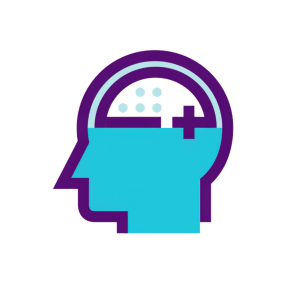Alzamend Neuro Announces Full Data Set from Phase IIA Multiple Ascending Dose Clinical Trial for AL001 Treatment of Dementia Related to Alzheimer’s
- Data confirm the positive topline results announced in June 2023 identifying a maximum tolerated dose as assessed by an independent safety review committee
- Identified dose is unlikely to require lithium therapeutic drug monitoring
- Data will guide upcoming “Lithium in Brain” Phase II clinical trials in partnership with Massachusetts General Hospital, which were announced in August 2024
Building on the promising preliminary results released in June 2023, Alzamend’s full data set confirms the successful determination of a maximum tolerated dose (“MTD”) for AL001. Identified by an independent safety review committee, this MTD represents a pivotal step forward; it delivers lithium at a lithium carbonate equivalent dose of 240 mg, taken three times daily (“TID”). This is an AL001 formulation that will unlikely require the need for traditional lithium therapeutic drug monitoring (“TDM”). This innovation is specifically designed to address the needs of fragile populations, such as elderly and Alzheimer’s patients, by offering a potentially more efficient and safer alternative to existing treatments.
Lithium, renowned for its efficacy as a first-line therapy for manic episodes and maintenance in bipolar disorder, has long been underutilized due to the complexities of TDM. Current
“This is a major step towards providing a significant breakthrough for the 43+ million Americans afflicted with Alzheimer’s, BD, MDD and PTSD. The data not only highlight AL001’s safety and tolerability but also herald its potential as a transformative lithium therapy that could redefine patient care by avoiding the need for TDM in clinical practice, thereby significantly enhancing effectiveness and safety,” said Stephan Jackman, Chief Executive Officer of Alzamend. “We appreciate the extraordinary efforts of our colleagues and partners to identify a rigorously determined MTD from this multiple-ascending dose study. We look forward to further evaluating AL001 in five ‘Lithium in Brain’ Phase II clinical trials in healthy subjects and patients diagnosed with mild to moderate Alzheimer’s, BD, MDD and PTSD, in partnership with Massachusetts General Hospital.”
About AL001 Phase IIA Study
The Phase IIA study evaluated the safety and tolerability of AL001 under multiple-dose, steady‑state conditions. It determined the MTD in patients diagnosed with mild to moderate Alzheimer’s disease and in healthy non-elderly and elderly subjects with adequate renal function. Lithium has been well characterized for safety and is approved and marketed in multiple formulations for BD. Lithium dosing for the multiple-ascending dose cohorts consisted of increasing fractions of, and a full usual dose, for treatment of BD. In each cohort, consisting of six active and two placebo subjects (as per randomization), multiple ascending doses were administered TID for 14 days, up to tolerability/safety limits. The results were:
- The safety profile was demonstrated to be benign at all dose levels, and so the selected dose level chosen for further development was based on avoidance of plasma drug concentrations associated in the medical literature with exceeding the upper limit of the therapeutic range of drug concentrations, thereby serving to mitigate potential toxicity;
- Under the conditions of this study, multiple dose administrations of AL001 were well tolerated in healthy elderly and non-elderly subjects, and in subjects with Alzheimer’s, regardless of their comorbidities; and
- No clinically obvious or relevant lithium or salicylate pharmacokinetic differences were observed between non-elderly and elderly healthy subjects, or Alzheimer’s subjects under the conditions of this study.
Based on the results from this study, Alzamend plans to initiate five clinical trials to determine relative increased lithium levels in the brain compared to a marketed lithium salt for healthy subject and patients diagnosed with mild to moderate Alzheimer’s, BD, MDD and PTSD, based on published mouse studies that predict that lithium can be given at lower doses for equivalent therapeutic benefit when treating with AL001. For example, the goal is to replace the amount of lithium needed for maintenance treatment of BD with a clinically relevant, lower AL001 lithium carbonate equivalent lithium dose. Such lithium dose mitigation could redefine the landscape of neuropsychiatric, neurodegenerative, and neurological treatment practices.
About Alzamend Neuro
Alzamend is an early clinical-stage biopharmaceutical company focused on developing novel products for the treatment of Alzheimer’s, BPD, MDD and PTSD. Our mission is to rapidly develop and market safe and effective treatments. Our current pipeline consists of two novel therapeutic drug candidates, AL001 - a patented ionic cocrystal technology delivering lithium via a therapeutic combination of lithium, salicylate, and L-proline, and AL002 - a patented method using a mutant-peptide sensitized cell as a cell-based therapeutic biologic vaccine that seeks to restore the ability of a patient’s immunological system to combat Alzheimer’s. Both of our product candidates are licensed from the University of South Florida Research Foundation, Inc. pursuant to royalty-bearing exclusive worldwide licenses.
Forward-Looking Statements
This press release contains “forward-looking statements” within the meaning of Section 27A of the Securities Act of 1933, as amended, and Section 21E of the Securities Exchange Act of 1934, as amended. These forward-looking statements generally include statements that are predictive in nature and depend upon or refer to future events or conditions, and include words such as “believes,” “plans,” “anticipates,” “projects,” “estimates,” “expects,” “intends,” “strategy,” “future,” “opportunity,” “may,” “will,” “should,” “could,” “potential,” or similar expressions. Statements that are not historical facts are forward-looking statements. Forward-looking statements are based on current beliefs and assumptions that are subject to risks and uncertainties. Forward-looking statements speak only as of the date they are made, and Alzamend undertakes no obligation to update any of them publicly in light of new information or future events. Actual results could differ materially from those contained in any forward-looking statement as a result of various factors. More information, including potential risk factors, that could affect Alzamend’s business and financial results are included in Alzamend’s filings with the
View source version on businesswire.com: https://www.businesswire.com/news/home/20241016892109/en/
Email: Info@Alzamend.com or call: 1-844-722-6333
Source: Alzamend Neuro, Inc.







